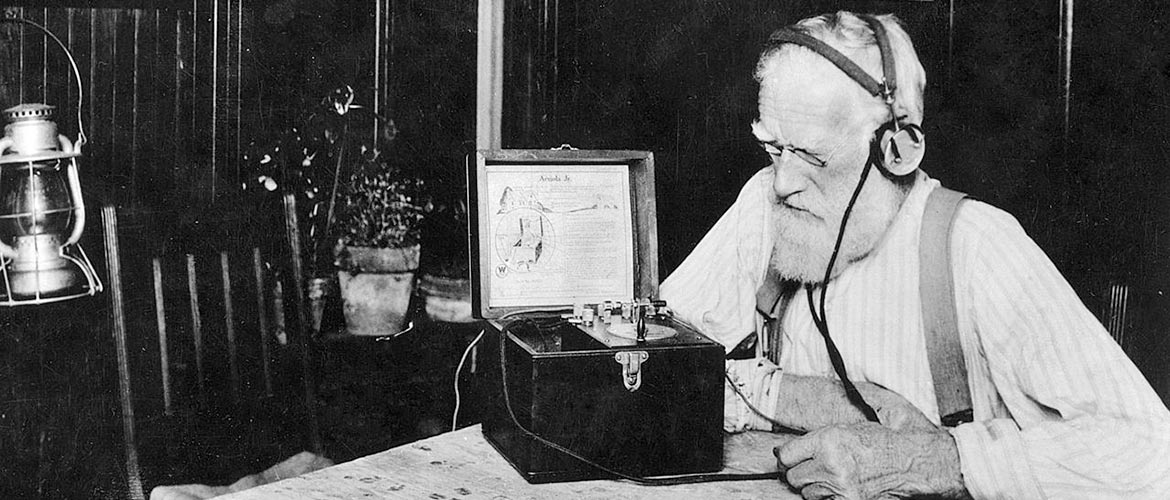 In the days after the first televised debate between Kennedy and Nixon, 282 total strangers created a political falsehood that overshadowed any sentence ever uttered that began with, “And if I’m elected…”
In the days after the first televised debate between Kennedy and Nixon, 282 total strangers created a political falsehood that overshadowed any sentence ever uttered that began with, “And if I’m elected…”
What crime did these 282 people commit? What dastardly deed did they execute?
They interrupted their dinners to answer a ringing telephone. The rest is political history—and a teachable moment about the politics of common sense.
Since 1960, political strategies and college courses have been built around the political fairy tale that voters who watched Kennedy and Nixon debate on television proclaimed Kennedy the winner. Meanwhile, voters who listened to the debate on the radio, where they couldn’t see Nixon ill at ease and perspiring profously behind his podium, awarded him the debate by as much as a two-to-one margin.
Two to one? At a time when the major national polls had Kennedy and Nixon a few kissed babies apart from a dead heat? Exactly what do we know about those audience results?
Well, we know…uh…we know that…well, that’s what happend, isn’t it? If only common wisdom were statistically significant.
Sadly, even a professional historian like Theodore White was fooled.
Here’s what actually took place in the days, and months, following the debate, according to research conducted by David L. Vancil and Sue D. Pendell of Colorado State University, and presented in a paper published in the Central States Speech Journal in Spring, 1987.
Only one public opinion survey, conducted by Sindlinger & Co., broke out the makeup of its sample audience. Of the 2138 people Sindlinger called in the continental United States, only 282 heard the debate on the radio. That’s hardly enough of a sample size to project over the entire country. But the situation is much worse.
Of those 282 people, only 178 of them offered an opinion as to which candidate won the debate. Those 178 people, whose only crime was answering the telephone, are the sole basis for the reporting that radio listeners gave Nixon the nod.
Ah, but there’s still room for the situation to degenerate.
Vancil and Pendell raised the obvious question—so obvious, apparently, that no one bothered to ask it—why did these 178 people listen to the debate instead of watch it? After all, television was still in its infancy. Kennedy and Nixon were squaring off in the first ever televised debate. This was a historical moment. What kind of person could resist the siren call of the television screen (even if it was only 17 inches)?
They came up with two possibilities: listeners lived in rural areas where television availability was spotty; or listeners were not near their televisions but were close to radios, perhaps because they were in their cars. Who would be in their cars during the debate? People living in the West, where the debate aired at 6:30 p.m.
It’s 56 years later, and your memory might be a little hazy, but would you like to hazard a guess as to where Nixon’s support was strongest? If you said rural areas and the West, consider a career in political polling.
Beginning with a statistically-meaningless sample size, compounded by the inclusion of respondents predisposed toward Nixon, 1960’s October surprise was that if you only listened to Nixon’s arguments, and weren’t distracted by all that visual folderol, he was far and away the winner.
All the story needed was a stamp of authority, which the historian and journalist Theodore White provided in his book The Making of the President, 1960. David Greenberg, writing in Slate, referenced this excerpt:
Those who heard the debates on radio, according to sample surveys believed that the two candidates came off almost equal. Yet every survey of those who watched the debates on television, said Nixon had lost.
Sadly, even a professional historian was fooled.
As Vancil and Pendell wrote of the surveys taken at the time, “Of the 31 surveys…including Gallup, Roper, Nielsen, and Opinion Research, only the Sindlinger poll reported the relative numbers of listeners in the audience for the first debate.”
The notion that Nixon won on radio could only have been inspired by the Sindlinger poll, and its results were fatally flawed.
Nevertheless, as a matter of pragmatic politics and popular belief, that first debate ushered in the era of style-over-substance campaigning. And the rest, Theodore White notwithstanding, is history.
A little bit of mathematics leads to the conclusion that most of those long-forgotten 178 people at the heart this story are no longer with us. But for those who are, a small suggestion.
The next time your telephone rings, finish your dinner.
Start your Sunday with a laugh. Read the Sunday Funnies, fresh humor from The Out Of My Mind Blog. Subscribe now and you'll never miss a post.
Mind Doodle…
A no-frills, tabletop 17-inch television cost about $249 in 1960. In today’s dollars, that would be $2,003.22. For that kind of investment, I’d have watched the Kennedy-Nixon debate on television if I’d had to carry the set around on my back.